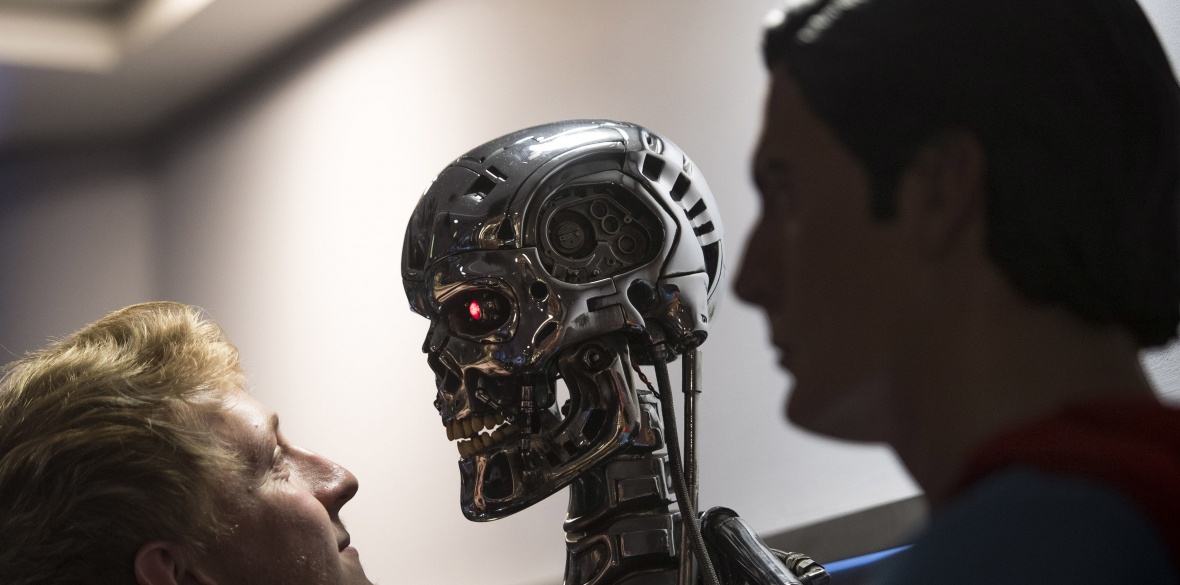This is the last article you can read this month
You can read more article this month
You can read more articles this month
Sorry your limit is up for this month
Reset on:
Please help support the Morning Star by subscribing here
A RECENT report from the Office for National Statistics (ONS) makes grim reading.
The country’s official statisticians reported that 1.5 million people in England are at high risk of losing their jobs to automation — with women holding more than 70 per cent of those roles believed to be at high risk.
PWC suggest that automation could boost Britain’s GDP by up to £232 billion by 2030. This latest stage of technological transformation is presenting us with a stark choice. Either automation is made to work for ordinary people, or the billions of pounds in profits will be in the hands of a privileged few.
Don’t think that this is something for the far future — it is already with us and advancing at speed. Amazon has opened automated supermarkets in the US and driverless buses are being trialled around the world, including in London. No need for any human interaction at all.
But how will this help ordinary working people? We need to demand more, a better settlement than redundancy and welfare (however it is dressed up). Technology should be used to deliver more leisure time and a shorter working week. Better retirements, safer workplaces and equal pay. This is what automation can deliver.
This will only be possible if workers have the confidence to fight and trade unions develop an industrial and political strategy. Most importantly working people will need a platform from which to bargain. There is no “one size fits all” approach, there will be no silver bullet. Instead hundreds of agreements will need to be reached, often with hostile employers. To do this we need power.
Our union has identified the top employers in all the industrial sectors where Unite is active. We are working with our representatives to deliver “New Technology Agreements.” Settlements, if reached, would give workers a real voice on crucial decisions. And we are making headway. At Bentley Unite successfully negotiated a reduction in their working week to 35 hours without loss of pay.
However, many employers will want to keep the benefits of automation to themselves. Unfortunately the moral argument rarely wins a better pay deal or prevents job losses. We must have industrial strength, built from the bottom up. We will need thousands of leaders at the workplace. And we will need to be smart, prepared to deploy comprehensive global campaigns against employers who refuse to play ball. We can’t rely on the state to save us.
But wherever possible we do need a plan for positive political action and the Labour Party does recognise the challenge of automation. Shadow chancellor John McDonnell has commissioned Lord Skidelsky to inform the Labour Party’s policy development on working time and how Britain’s workers face the challenges of automation.
It is critical that policy development is not just left to experts and academics – working people must frame the debate. To this end, Unite is working with our activists to develop a 21st-century Workplace Manifesto. Our engagement, including a survey of over 20,000 representatives, has already shown that working people want employment to remain a central pillar of society. They reject some employers’ attempts to simply cast them aside and instead believe automation should deliver shorter working time without loss of pay.
What is often forgotten in this debate is the meaning of work. At its best it is not just paying the rent and putting food on the table. It can also provide purpose, meaning and dignity. At present there are no realistic replacements. Proposals for a socially just universal basic income are OK as far as they go. But I fear it is more likely that any well intended plans could be used as a smokescreen for unemployment.
There is no political settlement on the issue and in what remains a global economic system, the forces of profit and liberalisation are comfortably stronger than those arguing for a progressive state. Forced unemployment in a neoliberal economy is not a prospect to be relished. For now we must fight for work, for jobs and for full employment. Automation does not have to mean mass joblessness.
The next phase of technology is going to generate wealth and opportunity. We need to ensure it delivers for society as a whole. Mass unemployment and rising inequality are not the hallmarks of a cohesive society. This issue matters regardless of politics. Moderate conservatives should be as concerned as progressives from the left. No-one wants to live in a society that is tottering on the brink.











